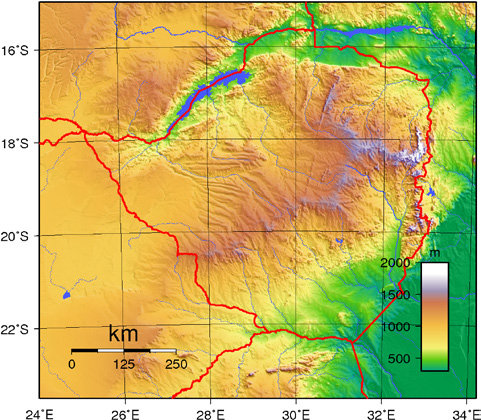Inadequate quality and capacity in climate data management has been identified as one of the remaining gaps as Zimbabwe intensifies interventions to scale up climate change mitigation projects. According to the Ministry of Environment, Climate, Tourism and Hospitality Industry, climate change is increasingly manifesting itself in the form of erratic rainfall patterns, increased frequency of droughts and intense rainfall activity leading to flooding, in Zimbabwe. In response to the challenge, the country ratified the Paris Agreement under the United Nations Framework Convention on Climate Change (UNFCCC). The ministry says that there is need for enhancing the country’s climate response, enabling environment, reviewing policy frameworks and strengthening institutional capacities to access climate action enablers such as climate finance, technology transfer and skills development.
In response to overcome the challenges, the government of Zimbabwe has nominated the Climate Change Management Department as the Green Climate Fund (GCF) National Designated Authority (NDA) to access readiness funds from the GCF. The Ministry of Energy said that stakeholders being targeted to redress the situation of inadequate quality data and capacity in climate data management include the Meteorological Services department, the Climate Change Management Department, Research Council of Zimbabwe (RCZ), including universities and research institutions in the country. The stakeholders will collaborate to support the development of an effective climate database management system to support climate action and decision-making.
According to a report on assessment and description of the environment sector statistics system prepared by the Zimbabwe Central Statistical Office (CSO) with support from the United Nations Development Programme (UNDP) in 2009, the Meteorological Services department has faced problems with respect to instruments for measuring certain data. The report says that an example is rain gauges, particularly located among the newly resettled farms which were vandalized. It says that some of the problems identified include transmission of data from the field to the data collection centres. It is also reported that the data produced by the meteorological office has gaps at certain geographical locations, since data is not captured due to malfunctioning equipment. The MET department says that there are gaps in data on greenhouse gas emissions and air pollution.



